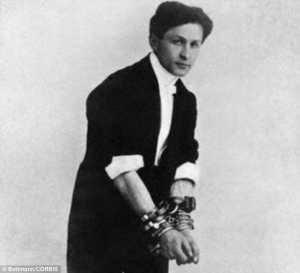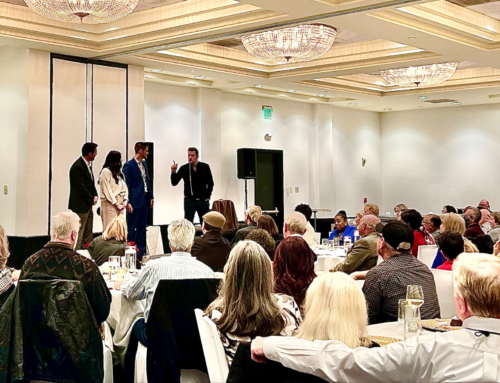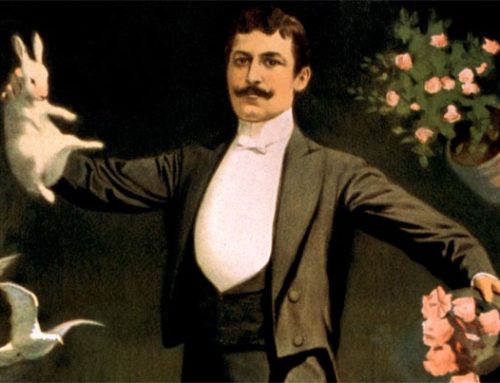Magic on TV…Good or Bad?
So what’s the deal? Over the years (and probably a lot more in recent years), you’ve seen magic on TV, from no-names to big names. Is it really all it’s cracked up to be? And more importantly, is it helping or hurting the art of magic?
 Back in the day…
Back in the day…
Ask 10 people to name a famous magician. It’s almost a rule that someone has to say Houdini. In the early 20th century, that was face of magic, as far as much of the world was concerned. It’s true, Houdini was a great marketer but the bottom line was, TV didn’t come into play. If you saw Houdini, you saw him live and there was a thrill of seeing a live performance back then that’s very hard to capture now. One reason is because it was not a microwave society then. There’s one story where Houdini was going to make an escape from handcuffs while standing behind a curtain and it took him more than an hour…the audience didn’t move from their seats the whole time. When he made his escape, he received an instant standing ovation from the crowd of hundreds. Back then, Houdini came out from behind the curtain to a very receptive audience; today he would’ve come out to an empty theater.
 Today? The Good News and the Bad News
Today? The Good News and the Bad News
Think of how different it is today? Usually, you can find some magic on TV every week, whether it’s a magician with his own show, or a show like America’s Got Talent where you might see multiple magicians. The good news is people get a lot more exposure to magic. The bad news is people get a lot more exposure to magic.
Why is more exposure to magic good? The level of excitement about magic has grown so much over the last 20 years, particularly since street magic became popular (David Blaine, Criss Angel). Honestly, magicians really can’t ask for more, especially when the typical magician stereotype for so many years was rabbits, hats and children’s parties.
So what’s the consequence? TV has created a microwave society…not to mention, a society where everything has to be spectacular to be worthy of people’s attention. Therefore, (are you ready for this?) some magic on TV isn’t always legitimate. Sometimes it’s camera tricks, sometimes it’s actors and sometimes it’s clever editing. When people see tricks on TV that can’t be done live, it really can give a lot of false expectations.
It even works the other way. How many special effects do you see on TV in a given day? Believe it or not, in an hour’s time, you can see thousands. So how hard is it to make a coin disappear on TV? Or anything else, for that matter? Teller of Penn & Teller said that magicians are “competing with the greatest special effects in the world”. So when you see a magician float in the air on one channel (even if it can be done live) and then on another channel, you see Superman doing the same thing, how can you really get excited about the magic?
So what’s the verdict?
For me personally, I think magic on TV today, despite what some magicians feel it’s doing, serves two main purposes. One is to grow people’s interest in magic. The more people get excited about magic, the more they want to see, which brings me to the second purpose. I think it promotes local magicians. It’s a great feeling to meet people every week that say they “love magic” and are happy to see me (even before I start performing). That means they’ve already had a good experience with magic and truthfully, if that’s what magic on TV is doing for the art, then two thumbs up from me.
Of course, you’re welcome to check out some of my TV appearances on the Videos page!






Leave A Comment